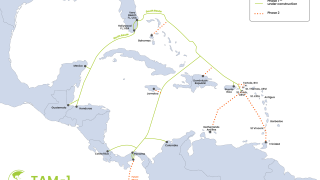According to a set of statements from the Federal Communications Commission (FCC) on Friday night, the operators have been told to show within 30 days why their licences should not be revoked.
The decision by the US government follows the May 2019 decision to reject China Mobile’s application for a licence to provide services to and from the US – a rejection that came eight years after China Mobile first applied for a licence under section 214 of the Communications Act of 1934.
The companies involved are:
China Telecom, which has had licences since 2001 and 2007;
China Unicom, whose licences go back to 2003 and 2004; and
Pacific Networks and its wholly owned subsidiary, ComNet (USA), both of which are owned by CITIC Telecom International Holdings and have licences from 2001 and 2003.
Pacific Networks resells international voice and data to operators on a wholesale basis, and ComNet – formerly CM Tel (USA) – provides international termination service, global SIM card service and a number of other services.
They all have to show cause within 30 days of the separate orders issued on 24 April – which means by 23 May – why they should not lose their section 214 licences.
The FCC also wants to withdraw their international signalling point codes (ISPCs) – routing codes that are assigned under signalling system No. 7 by national regulators under the authority of the International Telecommunication Union (ITU).
A spokesman for CITIC told Capacity this morning: “We will respond within 30 days to the FCC according to the request. Pacific Networks and ComNet (USA) have always been complying strictly with the US laws and telecommunications regulatory requirements. We have been able to provide services in the US for more than 10 years, based on our solid compliance foundation.”
Telecoms lawyers had expected Friday’s announcement from the FCC since mid-April, when President Donald Trump issued an executive order allowing the US effectively to block any foreign telecoms company by withdrawing its section 214 licence.
One, Richard Sofield, a partner with the Wiley law firm in the US, told Capacity that the FCC’s orders “represent a significant step in the US government’s efforts to push Chinese communications providers out of the US market based on national security concerns”.
In the UK, Stephanie Liston, a former member of the Ofcom regulator who is now leading law firm Mishcon de Reya’s telecoms practice, said: “The growing nationalism in the US is now manifesting itself in the regulation of interconnectivity.”
Earlier in her career Liston was in the international group at MCI – now part of Verizon Business – negotiating its interconnection agreements that expanded it globally. “This step is a significant U-turn, which could have dramatic wider implications for the industry as a whole,” she said.
Sofield also worried about the potential of the FCC action to affect the whole telecoms industry. “These US government efforts will ripple through the industry as providers in the United States and around the world assess the extent of their business relationships with these, and other, Chinese companies and determine the impact that severing those relationships would have on the continuing provision of communications services.”
Incidentally, the executive order is not specifically a Trump activity. Capacity understands that it was originally drafted when Barack Obama was president.
On the first full working day after the FCC orders it’s not yet clear how wide the impact will be. One senior UK government official contacted by Capacity was still assessing it. “I’m still catching up on these matters,” said the official. One international telecoms carrier told Capacity: “As the situation is unclear to us, we are not a position to comment.”
At first sight, the rulings – if they are carried through after 23 May – do not seem to stop US carriers handing traffic destined for China to an intermediary in Asia or Europe for onward transit to China; or for Chinese operators to do likewise with calls and data heading to the US.
What they clearly will potentially do after late May is stop Chinese operators running networks in US territory – and that could mean sharing ownership of subsea cables that land in the US.
And they will stop Chinese operators from running mobile virtual networks in the US for Chinese business people and tourists.
In the long term the move could have wider impact. Trump’s executive order refers simply to “foreign” telecoms operators, all of which need section 214 licences. While the US relationship with China is particularly delicate at the moment, the US government could take action against operators from other jurisdictions.






